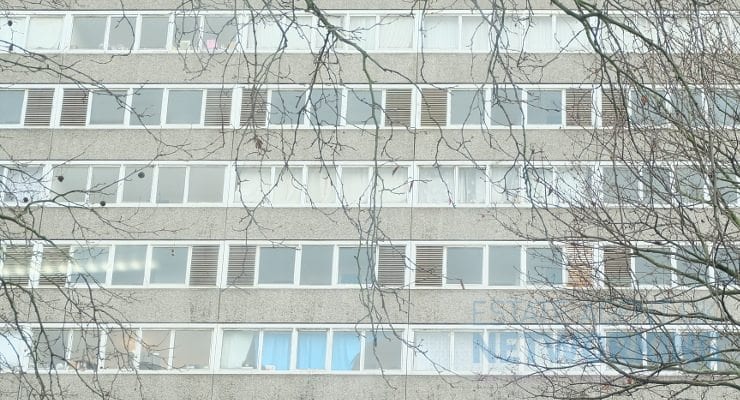Landlords have just days to comply with New Energy Efficiency Standards
As of the 1st April 2018, landlords of private rented properties will need to comply with an Energy Performance Certificate (EPC) rating of ‘E’. When this legislation comes into place in just a few days, landlords could risk hefty fines if their property is not compliant.
Rose Jinks of Just Landlords Insurance Services comments on their new research, which has found “the lack of awareness around this key legislation is astounding. Landlords and tenants need to know what their EPC rating is, as it could not only help them avoid a fine, but also could save them large sums of money. Our survey found that less than four in ten people in the market are even aware of how improving your EPC could save them money.”
The Minimum Energy Efficiency Standards (MEES) are regulations which introduce requirements for the letting of property. With residential and commercial properties accounting for about 37% of the UK’s greenhouse emissions, the new energy efficiency standards have been brought in as a means of reducing this.
On behalf of Lodders Solicitors, Alastair Frew comments; “The Department for Business, Energy & Industrial Strategy has published guidance for landlords and enforcement authorities on how the Energy Efficiency (Private Rented Property) (England and Wales) Regulations 2015 (SI 2015/962) will operate.
“The guidance explains an important requirement of the MEES regulations and landlords must take note – from the 1st April 2018 and under MEES, it will be unlawful for a landlord to let a building that does not comply with the EPC ‘E’ rating minimum required energy efficiency standard,” explains Alastair. “It will be unlawful to let a non-compliant building after the 1st April 2018, and to continue to let a non-compliant building after 1st April 2023.
“Landlords may have to improve the energy efficiency of a building before letting the building on or after 1st April 2018, and/or to improve a currently let building if continuing to let the building after 1 April 2023.
“The MEES regulations do not prohibit the landlord from passing on the cost to the tenant – but parties should check their leases to see who is responsible for these costs.”
Funding is available to help landlords with any upgrades, as Frew continues to explain: “Without doubt, there are financial implications of MEES to all landlords, from the potential loss of value and/or rental income, to the actual cost of upgrading non-compliant properties.
“MEES improvements can be funded by the Green Deal, where the works are paid for by a Green Deal provider, and the tenant then repays the cost through its energy bill, but this passes to the landlord in void periods.
“Once the property is compliant, the property is deemed to be compliant for the following five years.”
He adds: “When lease renewals are due, the MEES regulations will apply when the renewal is under Part II of the Landlord and Tenant Act 1954, and the landlord can obtain a temporary six-month exemption, subject to its being registered on the PRS Exemptions Register.”
Are there any exemptions to the rules?
The exemptions are provided in certain circumstances, such as when:
• The landlord cannot achieve an E rating despite having made ‘qualifying energy efficiency improvements’ (i.e. cost-effective works measured over a seven-year payback period);
• The work required to bring the property up to an E rating would result in more than a 5% reduction in the value of the property;
• Despite reasonable efforts, it has not been able to obtain the consent for the improvement works of the tenant, a superior landlord or a mortgagee, or to obtain planning or listed building consent to the making of relevant improvements within the last 5 years. The landlord must have registered the exemption on the PRS Exemptions Register;
• Leases are more than 99 years;
• Leases that are less than 6 month ‘term certain’, are exempt, provided there is no right to renew or extend beyond 6 months, and that at the time the tenancy is granted, the tenant has not already occupied the property for more than 12 months. Very short-term leases, periodic tenancies and tenancies at will do, however, fall within the restrictions;
• Buildings that do not require an EPC are also exempt from MEES. This includes unheated warehouse premises, but please note that buildings that ‘should’ be heated are not exempt even if no heating system is installed;
• Listed buildings do require to comply with MEES if the work can be done without unacceptably altering their character of appearance.
“If not already done so, landlords should review their property/property portfolios without delay,” Frew says, “and inspect them to create an inventory of the properties that fall within MEES, whether the exemptions and lease provisions can be applied and utilised, and assess the likely costs of any required upgrades.”
Written by: Jess Goodridge – jess.goodridge@purplebridgepublishing.co.uk









